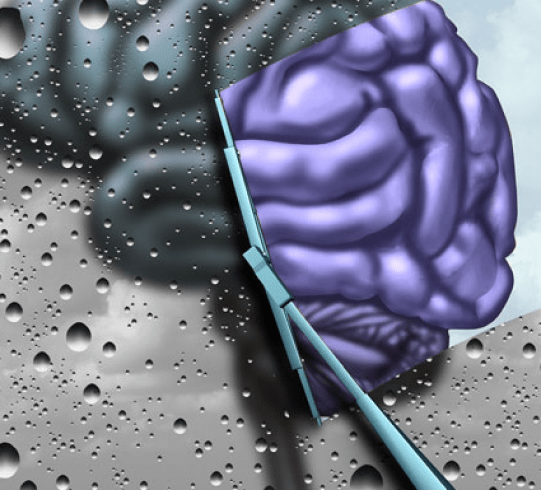Serious Mental Illness
Serious Mental Illnesses (SMIs) are mental health conditions resulting in functional impairments that substantially interfere with or limit major life activities1. We are committed to supporting clinicians in monitoring and treating all patients – including those with SMI – providing quantitative insights to manage patient therapies with timely and critical data.
The Clinical Need for Antipsychotic Drug Monitoring
Antipsychotic Drug Monitoring improves care for those with Serious Mental Illness by aiding medication adherence.5,6
The WHO World mental health report* published in June 2022 indicates that in 2019, 13% of global population is living with mental health disorders. Of these, Schizophrenia, which occurs in 24 million, is a primary concern and Bipolar disorder, another key concern of mental health services around the world, occurs in 40 million people.
Schizophrenia
A severe, chronic condition that causes an abnormal interpretation of reality. Hallucinations, highly disordered thinking, reduced ability to function, and delusions are common.
Bipolar Disorder
Causes drastic mood, energy and activity swings. During manic episodes, people feel euphoric with increased energy. During depressive episodes, people feel deep sadness with low energy
Antipsychotic Drug Monitoring in Clinical Decision Making
For clozapine and similar medications, therapeutic drug monitoring is important for making clinical decisions. In this presentation, The Role of Antipsychotic TDM in Clinical Decision Making: The Example of Clozapine, the unique place of clozapine for treatment-resistant schizophrenia and the role of TDM in treatment are discussed.
| Parameter | Beckman Chemistry Platforms | LC-MS/MS |
| Turnaround Time | 2-5 days* Confirmatory/reflect test can take longer |
|
| Location | |
Generally off-site |
| Volume for testing | |
0.3 - 1 mL |
| Regulatory Clearance | |
No guidance |
| Reference Range | |
Reference ranges can vary |
Accurate Treatment Starts with Accurate Testing
Get results within hours rather than days.
Every patient is unique. Accurate, timely information is required to make informed treatment decisions. Our extensive portfolio of antipsychotic drug monitoring assays† offers the right tools to enhance clinical decision making.
| Drug Name | Prescribed For | Intended Use | Chemistry Platforms |
| Clozapine† | Schizophrenia, schizoaffective disorder | Psychiatry Clozapine Assay Kit is intended for the in vitro quantitative measurement of clozapine in human serum and plasma | AU480, AU680, AU5800, DxC 700 AU |
| Risperidone† or Paliperidone† | Schizophrenia, Bipolar Mania, irritability associated with autistic disorder (Risperidone); schizophrenia, schizoaffective disorder (paliperidone) | Psychiatry Total Risperidone Assay Kit is intended for the in vitro quantitative measurement of risperidone and Paliperidone (9-hydroxyrisperidone) in human serum | AU480, AU680, AU5800, DxC 700 AU |
| Aripiprazole† | Schizophrenia, bipolar disorder | Psychiatry Total Aripiprazole Assay Kit is intended for the in vitro quantitative measurement of total aripiprazole (aripiprazole plus dehydroaripiprazole) in human serum | AU480, AU680, AU5800, DxC 700 AU |
| Quetiapine† | Schizophrenia, bipolar disorder, adjunctive treatment of major depressive disorder (MDD) | Psychiatry Quetiapine Assay Kit is intended for the in vitro quantitative measurement of quetiapine in human serum | AU480, AU680, AU5800, DxC 700 AU |
| Olanzapine† | Schizophrenia, bipolar disorder | Psychiatry Olanzapine Assay Kit is intended for the in vitro quantitative measurement of olanzapine in human serum | AU480, AU680, AU5800, DxC 700 AU |
†Not all assays available in all countries. Please check with your Beckman Coulter representative for availability.
Clozapine Monitoring
Clozapine, an atypical antipsychotic, is the gold standard for managing treatment resistant schizophrenia, decreasing the likelihood of suicide and hallucinations. Monitoring blood levels of clozapine is vital to reduce the risks from serious potential side effects as well as patient adherence to therapy.
Additional Resources
BLOG Brief History of Antipsychotic Drugs
Mental illnesses are now recognized as treatable conditions. Historically, though, people with these conditions were ridiculed and stigmatized. Learn more about the tortuous history of SMI.

BLOG Antipsychotic Drug Monitoring for Serious Mental Illness
Antipsychotic drugs are often prescribed for those with SMI. Monitoring blood levels of these medications ensures patient compliance and appropriate care.

Request More Information
Please complete the form to receive more information on our Antipsychotic Drug Monitoring test kits.
Thank you for your request. A Beckman Coulter representative will contact you shortly.
Click here to learn more about our full therapeutic drug monitoring, testing and detection menu.
Saladax is a registered trademark of Saladax Biomedical, Inc.
†Not all assays available in all countries. Please check with your Beckman Coulter representative for availability.
1. Substance Abuse and Mental Health Services Administration Center for Mental Health Services. 58 Fed. Reg. 29422. (Final Notice May 20, 1993)
2. James, S. et al. (2018). Global, regional, and national incidence, prevalence, and years lived with disability for 354 diseases and injuries for 195 countries and territories, 1990–2017: a systematic analysis for the Global Burden of Disease Study 2017. The Lancet, 392(10159), 1789–1858. https://doi.org/10.1016/s0140-6736(18)32279-7
3. Schizophrenia. (2022, January 10). World Health Organization. Retrieved June 10, 2022, from https://www.who.int/news-room/fact-sheets/detail/schizophrenia
4. Saloni Dattani, Hannah Ritchie and Max Roser (2021) - "Mental Health". Published online at OurWorldInData.org. Retrieved from: 'https://ourworldindata.org/mental-health [Online Resource]
5. Kelly, D. et al. (2018). Addressing Barriers to Clozapine Underutilization: A National Effort. Psychiatric services (Washington, D.C.), 69(2), 224–227. https://doi.org/10.1176/appi.ps.201700162
6. Transforming the Understanding and Treatment of Mental Illness. (2021). National Institute of Mental Health (NIMH). Retrieved January 26, 2022, from https://www.nimh.nih.gov/health/statistics/mental-illness Accessed 12 July 2022
7. Byerly, M., et al. (2005). A comparison of electronic monitoring vs. clinician rating of antipsychotic adherence in outpatients with schizophrenia. Psychiatry Research, 133(2–3), 129–133. https://doi.org/10.1016/j.psychres.2004.11.002
8. Keck P. (2014). Monitoring pharmacotherapy response, safety, and tolerability to enhance adherence in bipolar disorder. The Journal of clinical psychiatry, 75(5), e12. https://doi.org/10.4088/JCP.13010tx4c
2022-10820
 English
English



